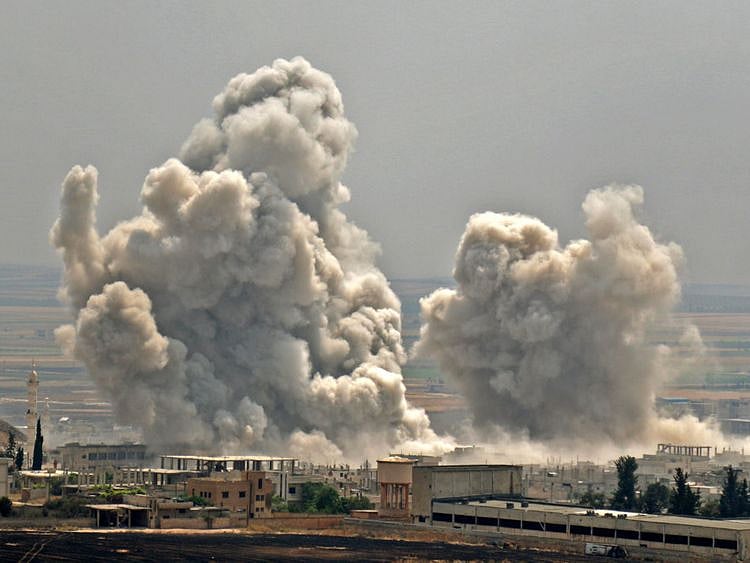Russia military reports ceasefire in Syria’s Idlib
Syrian civilians said there had been heavy shelling from pro-government forces Wednesday

Moscow: Two Russian news agencies reported late Wednesday that the Russian military had announced a cease fire agreement to halt the fighting between Syrian government and rebel forces in northwest Syria.
The reports said the cease fire was negotiated between Russia, which backs the Syrian government of President Bashar Al Assad, and Turkey, which controls much of Syria’s northwest.
According to the reports from RIA and Interfax, Russian state news agencies, a Russian major general, Viktor Kupchishin, said that the cease fire had taken effect and that firing from rebel positions had declined.
But Syrian civilians in the area said there had been heavy shelling and bombing from pro-government forces on Wednesday.
They said that military operations seemed to have slowed after midnight but that there was still activity from reconnaissance planes.
The Russian reports did not say when hostilities were supposed to cease or how long the cease fire was to last.
The reports indicated that the cease fire had taken effect after midnight on Tuesday, but the Syrian Observatory for Human Rights, a Britain-based war monitor, said it had begun at midnight on Wednesday, after an evening of intense airstrikes, which the group had counted at 25.
If the fighting does freeze, it would end more than a month of violence in Idlib province, the last rebel-held territory that remains in Syria after eight years of civil war.
A Turkish-Russian agreement had kept the area calm until pro-government forces began attacking it with airstrikes, shelling and ground troops in the spring, forcing more than a quarter of a million people to flee to makeshift open-air campsites, closing hospitals and schools, and killing at least 160 civilians. Officials said the actual number of deaths was likely much greater.
RIA reported that rebels had fired at government forces “only twice” since the cease fire took effect, but that government forces had not returned fire.
Kupchishin said there was “a significant decline in the number of shots fired from the direction” of the rebels, Interfax reported.
He said that on Wednesday there were only two episodes of shelling, in nearby Hama province.
In Idlib, civilians who had been sleeping in open fields after evacuating their homes anxiously awaited word of whether the violence would end.
“They don’t just want a cease fire, but also to go back home,” said Ahmad Nayrouz, a civil defense volunteer reached on WhatsApp on Wednesday night.
“It would be really great news to be back home. People are excited to return home, even though there’s nothing left.”
Russia and Turkey’s previous de-escalation deal on Idlib called on Turkey, the area’s dominant foreign power, to rid the province of Hayat Tahrir al-Sham, a militant group linked to al-Qaida that now controls the area. But Turkey had not made much progress reining in the group, and Russia, apparently losing patience, had allowed pro-Assad forces to march on Idlib.
Thanks to the militant group’s presence, the Syrian and Russian governments have portrayed the Idlib offensive as a campaign against terrorists.
Idlib is also home to about 3 million civilians and a mix of other rebel groups.
Sign up for the Daily Briefing
Get the latest news and updates straight to your inbox
Network Links
GN StoreDownload our app
© Al Nisr Publishing LLC 2026. All rights reserved.